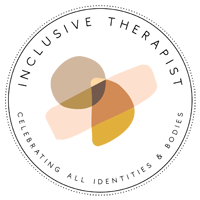As a therapist, I often see how people’s beliefs, including religious ones, shape their lives. Religion can be a source of comfort, community, and meaning for many. So, before we explore some potential downsides, let’s acknowledge the positive aspects that religion can bring:
Let’s Start With the Benefits of Religion
- Community: Religious groups often provide a sense of belonging and social support.
- Purpose: Faith can give people a sense of meaning and direction in life.
- Comfort: Religious beliefs can offer solace during difficult times.
- Moral guidance: Many religions provide ethical frameworks that help people navigate life’s challenges.
- Traditions: Religious practices can create a sense of continuity and connection to one’s cultural heritage.
These benefits can contribute to better mental health and well-being for many individuals. However, it’s important to recognize that religion can also have negative impacts on some people’s lives.
When Religion Hurts
While religion can be a positive force, there are times when it may cause harm. As a therapist, I’ve seen several ways this can happen:
1. Guilt and Shame
Some religious teachings can lead to excessive feelings of guilt or shame. When people believe they’re constantly falling short of impossibly high standards, it can damage their self-esteem and mental health.
2. Fear and Anxiety
Certain religious beliefs, like the concept of eternal punishment, can create deep-seated fears and anxiety. This constant worry can interfere with daily life and overall well-being.
3. Isolation
Sometimes, religious groups discourage contact with people outside the faith. This can lead to isolation and limit a person’s support network, which is crucial for mental health.
4. Delayed Medical Care
In some cases, people might avoid seeking necessary medical or mental health care due to religious beliefs. This can have serious consequences for their well-being.
5. Family Conflicts
Differences in religious beliefs within families can lead to tension, arguments, and even estrangement. This can be particularly difficult for young people or those in interfaith relationships.
6. Intolerance
Some religious teachings may promote intolerance towards certain groups, leading to discrimination and prejudice. This can harm both the targets of discrimination and those holding these beliefs.
7. Difficulty Questioning Beliefs
Many religions discourage questioning or doubting core beliefs. This can make it hard for people to explore their own thoughts and feelings, potentially stunting personal growth.
8. Pressure to Conform
Religious communities sometimes exert strong pressure to follow specific lifestyle choices. This can lead to stress and inner conflict for those who don’t naturally fit these expectations.
Finding Balance
It’s important to remember that these problems don’t apply to all religious experiences. Many people find great joy and fulfillment in their faith without encountering these issues. The key is finding a healthy balance and being aware of how your beliefs impact your mental health.
If you’re struggling with any of these challenges, here are some suggestions:
- Reflect on your beliefs: Take time to think about what aspects of your faith feel right to you and which ones might be causing distress.
- Seek support: Talk to understanding friends, family members, or a therapist about your concerns.
- Explore different perspectives: Learning about various interpretations within your faith or other belief systems can broaden your understanding.
- Focus on the positive: If you choose to remain religious, try to focus on the aspects of your faith that bring you peace and joy.
- Remember your worth: Your value as a person isn’t determined by how well you follow religious rules or beliefs.
- Consider professional help: If religious-related anxiety or guilt is severely impacting your life, a mental health professional can offer valuable support.
Religion, like many aspects of life, can be complex. What brings comfort to one person might cause distress for another. The most important thing is to be honest with yourself about how your beliefs affect your well-being and to seek help if you need it. Remember, it’s okay to question, to doubt, and to prioritize your mental health on your spiritual journey.
Learn More
If you’d like to learn more about how religion or spirituality can cause harm, we invite you to check out our Religious Trauma & Spiritual Abuse Therapy Page.
If you’d like to reach out to us, we welcome you to do so here.













